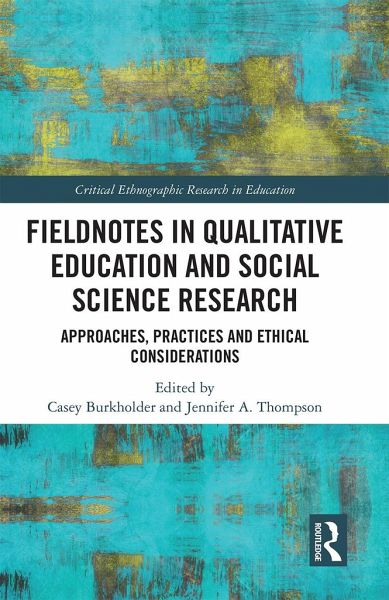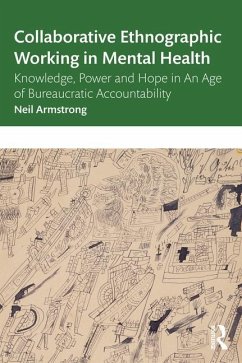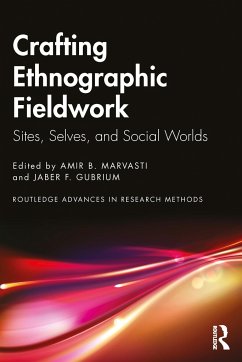
Fieldnotes in Qualitative Education and Social Science Research
Approaches, Practices, and Ethical Considerations
Herausgegeben: Burkholder, Casey; Thompson, Jennifer

PAYBACK Punkte
22 °P sammeln!
Building upon the incorporation of fieldnotes into anthropological research, this edited collection explores fieldnote practices from within education and the social sciences.Framed by social justice concerns about power in knowledge production, this insightful collection explores methodological questions about the production, use, sharing, and dissemination of fieldnotes. Particular attention is given to the role of context and author positionality in shaping fieldnotes practices. Why do researchers take fieldnotes? What do their fieldnotes look like? What ethical concerns do different types ...
Building upon the incorporation of fieldnotes into anthropological research, this edited collection explores fieldnote practices from within education and the social sciences.
Framed by social justice concerns about power in knowledge production, this insightful collection explores methodological questions about the production, use, sharing, and dissemination of fieldnotes. Particular attention is given to the role of context and author positionality in shaping fieldnotes practices. Why do researchers take fieldnotes? What do their fieldnotes look like? What ethical concerns do different types of fieldnotes practices provoke? By drawing on case studies from numerous international contexts, including Argentina, Cameroon, Canada, Ghana, Hong Kong, Hungary, Kenya, Lebanon, Malawi, the Netherlands, South Africa, and the US, the text provides comprehensive and nuanced answers to these questions.
This text will be of interest to academics and scholars conducting research across the social sciences, and in particular, in the fields of anthropology and education.
Framed by social justice concerns about power in knowledge production, this insightful collection explores methodological questions about the production, use, sharing, and dissemination of fieldnotes. Particular attention is given to the role of context and author positionality in shaping fieldnotes practices. Why do researchers take fieldnotes? What do their fieldnotes look like? What ethical concerns do different types of fieldnotes practices provoke? By drawing on case studies from numerous international contexts, including Argentina, Cameroon, Canada, Ghana, Hong Kong, Hungary, Kenya, Lebanon, Malawi, the Netherlands, South Africa, and the US, the text provides comprehensive and nuanced answers to these questions.
This text will be of interest to academics and scholars conducting research across the social sciences, and in particular, in the fields of anthropology and education.














